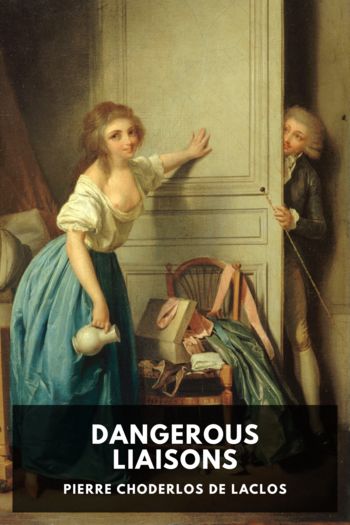The Other Side of the Door, Nicci French [new reading .TXT] 📗

- Author: Nicci French
Book online «The Other Side of the Door, Nicci French [new reading .TXT] 📗». Author Nicci French
When I reached the car I found the ticket in the glove compartment. Everything went easily. I had to go into the office to pay £80.20 but the girl behind the counter barely looked at me and there was no camera when I drove out of the barrier. They’re not bothered about you when you leave, just so long as you’ve paid.
When I got to London, I turned off into Walthamstow towards the address I’d written down. It was perfect. The SupaShine Twenty-Four-Seven Car Cleaning Service was located on what must previously have been a petrol station or a car showroom. As I pulled in, I saw a large group of overalled young men hard at work with hoses and sponges on a row of cars. I removed my gloves, because they made me look insane. I got out and an extremely fat man holding a clipboard came up to me. ‘You want standard wash and leather?’ he said.
‘What else do you do?’
He pointed up at the sign on the wall.
‘What’s the Interior Valet?’ I asked.
He sniffed. ‘Vacuum and shampoo all carpets, including boot carpet. Clean every surface, remove rubbish, clean the ashtrays.’
He peered at the car dubiously. It was absolutely filthy.
‘What about the exterior?’ he said.
That didn’t matter so much but I didn’t want him to remember me and he had probably never in his entire life been asked to clean the inside of a car and not the outside. ‘And the exterior as well,’ I said. ‘Of course.’
He walked over and looked more closely at Hayden’s shoddy old Rover with its rusting sills and balding tyres. ‘It’s usually company cars that have the Executive,’ he said.
‘I borrowed it,’ I said. ‘I promised to have it washed before I gave it back.’
‘That’ll be ninety pounds,’ he said, with a shrug.
‘A bargain,’ I said, and counted the money out.
‘It’ll take about half an hour,’ he said. ‘We’ve got a waiting room.’
‘I’m fine,’ I said.
For the next half-hour I stood in the warm morning sunshine in a part of London I had never visited and watched the men doing what Sonia and I should have done, which was to scour every surface, vacuum-clean and remove a surprising amount of clutter, some of which may have been things that we—more probably I—had dropped by mistake. Better still I heard the men talking to each other in a language, or languages, I didn’t understand. I knew this type of place. They employed recent immigrants, low wages, no questions asked, high turnover. Nobody would remember me. Nobody would even still be here should any questions be asked. Nobody would remember the woman from the non-existent Spalsboro Sports Club.
I put my gloves back on and drove away, but only went a few hundred yards before turning left onto a busy road full of down-at-heel Internet cafés, shops selling cheap umbrellas, greengrocers with tubs containing fruit I couldn’t name, a seedy taxidermist’s, a barber, a shop selling canaries, budgerigars and hamsters in cages that were stacked up in the window, and another offering hardware. It was a poor and crowded area—perfect for my purposes. I pulled up behind a white van delivering fizzy drinks, checked that I had left nothing on the seats to incriminate me, turned off the engine but left the key in the ignition, got out and strolled away, trying to look nonchalant. Now someone just had to steal it. Surely that wouldn’t take long.
I had planned to go straight home, but I suddenly found I was so tired and so dizzy with a sensation that might have been hunger or might have been fear that I could barely put one foot in front of the other. I stumbled down the street until I came to a café with two tables by the window and a counter full of doughnuts and pastries. I ordered a cup of tea and a blueberry muffin and sat at a table. The tea was tepid and stewed and I had to drink it in hasty sips; the muffin had seen better days. It was like sawdust in my mouth, but nevertheless I could feel its sweetness giving me energy.
Outside the window life was going on. Women pulling toddlers passed by, teenagers in a gaggle, solitary men—some walking slowly and others with a quick and purposeful stride. There were a lot of cars, barely moving on the traffic-clogged road. Motorbikes and lorries too. And—I blinked but there could be no mistaking it—a tow-truck with a rusty old Rover on it. Hayden’s Rover. The Rover I had left with the key in the ignition to be stolen. How had that happened? It had taken them less than half an hour to tow away the car I’d left to be stolen. Had I parked it on a red line? Surely not. Now, instead of Hayden’s car getting its number plate ripped off and being driven around London by a thief, it had been taken away by the traffic police. Had I ruined anything? And then I thought: Maybe not. Maybe I had found a good way of getting rid of the car. Or was it a disaster? I didn’t know and there was nothing I could do about it. It was too late.
An hour later, I was back at home. I took my crazy clothes off and put real ones on, then walked around Camden, depositing the slacks, the





Comments (0)